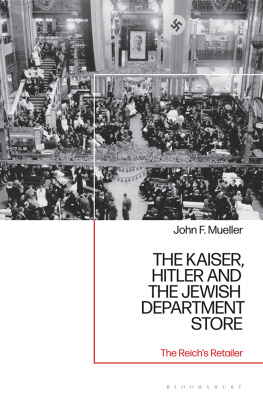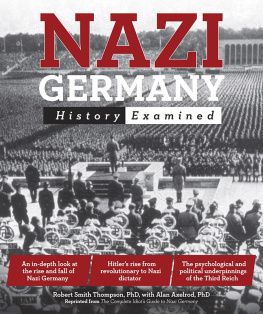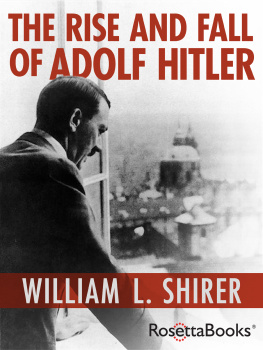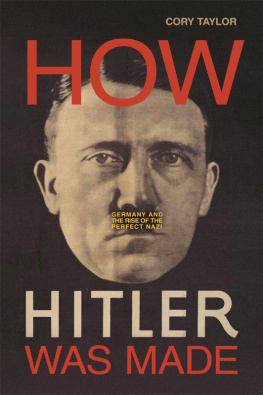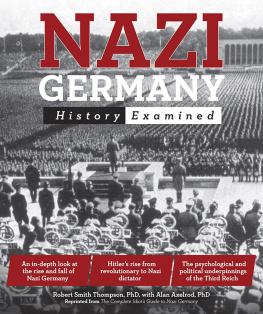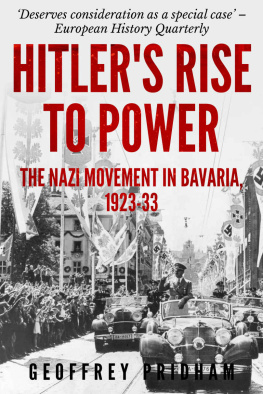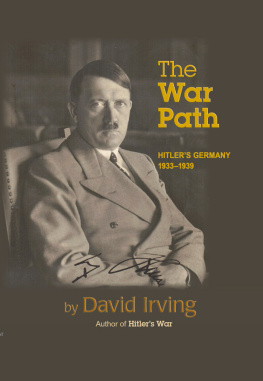
Defying Hitler: A Memoir
by Sebastian Haffner
translated from the German by Oliver Pretzel
Published by Plunkett Lake Press , April 2014
Sarah Haffner and Oliver Pretzel
Translation copyright Oliver Pretzel
First published in Germany by Deutsche Verlags-Anstalt as Geschichte eines Deutschen: Die Erinnerungen 1914-1933
~ Other eBooks from Plunkett Lake Press ~
Also b y Sebastian Haffner
Failure of a Revolution: Germany 1918-1919
Germany: Jekyll and Hyde
The Ailing Empire: Germany from Bismarck to Hitler
The Meaning of Hitler
The Rise and Fall of Prussia
By Sholom Aleichem
From the Fair
By Henri Alleg
The Question
By Jean-Denis Bredin
The Affair: The Case of Alfred Dreyfus
By Carl Djerassi
The Pill, Pygmy Chimps, and Degas Horse: The Autobiography of Carl Djerassi
By Alfred Dblin
Destinys Journey
By Helen Epstein
Children of the Holocaust
Joe Papp: An American Life
Music Talks: The Lives of Classical Musicians
Where She Came From: A Daughters Search for Her Mothers History
By Charles Fenyvesi
When The World Was Whole: Three Centuries of Memories
By Frederic Grunfeld
Prophets Without Honour: Freud, Kafka, Einstein, and Their World
By Anthony Heilbut
Exiled in Paradise: German Refugee Artists and Intellectuals in America from the 1930s to the Present
By Eva Hoffman
Lost in Translation
By Peter Stephan Jungk
Franz Werfel: A Life in Prague, Vienna, and Hollywood
By Egon Erwin Kisch
Sensation Fair: Tales of Prague
By Heda Margolius Kovly
Under A Cruel Star: A Life in Prague, 1941-1968
By Peter Kurth
American Cassandra: The Life of Dorothy Thompson
By Hillel Levine
In Search of Sugihara: The Elusive Japanese Diplomat Who Risked His Life to Rescue 10,000 Jews from the Holocaust
By Hillel Levine and Lawrence Harmon
The Death of an American Jewish Community: A Tragedy of Good Intentions
By Jan Masaryk
Speaking to My Country
By Melita Maschmann
Account Rendered: A Dossier on my Former Self
By Albert Memmi
Portrait of a Jew
The Colonizer and the Colonized
The Liberation of the Jew
The Pillar of Salt
By Sheldon Novick
Honorable Justice: The Life of Oliver Wendell Holmes
By Susan Quinn
A Mind of Her Own: The Life of Karen Horney
Marie Curie: A Life
By Santha Rama Rau
East of Home
By Vlasta Schnov
Acting in Terezn
By Susan Rubin Suleiman
Budapest Diary: In Search of the Motherbook
By Joseph Wechsberg
Homecoming
The Vienna I Knew: Memories of a European Childhood
By Victor Weisskopf
The Joy of Insight: Passions of a Physicist
By Chaim Weizmann
Trial and Error: The Autobiography of Chaim Weizmann
By Charlotte Wolff
Hindsight: An Autobiography
By Friderike Zweig
Married to Stefan Zweig
By Stefan Zweig
Adepts in Self-Portraiture: Casanova, Stendhal, Tolstoy
Amerigo: A Comedy of Errors in History
Balzac
Dostoevsky by Zweig
Freud by Zweig
Joseph Fouch: Portrait of a Politician
Marie Antoinette: The Portrait of an Average Woman
Mental Healers: Franz Anton Mesmer, Mary Baker Eddy, Sigmund Freud
The Struggle with the Daemon: Hlderlin, Kleist, Nietzsche
The World of Yesterday
Three Masters: Balzac, Dickens, Dostoevsky
For more information, visit www.plunkettlakepress.com
Contents
Chapters
Chapters
Chapters
Germany is nothing, each individual German is everything.
GOETHE, 1808
But first the most important thing:
What are you doing in these great times?
Great I say; for times seem great
to me, when each man, driven
half to death by the eras hate,
and standing in the place hes given,
Must willy-nilly contemplate
no less a thing than his own BEING!
A little breath, a seconds wait
May well suffice you catch my meaning?
PETER GAN, 1935
INTRODUCTION
My father, Sebastian Haffner, might not have been pleased to see this book published. He died in 1999 at the age of ninety-one, a celebrated German author and historical journalist with a reputation for books containing highly original, coolly and lucidly argued insights into the history of Germany in the twentieth century. This book, the first political book he wrote, was started in exile in England early in 1939. Abandoned in the autumn of that year, it may be original and lucid, but it is not cool. It is the passionate outburst of a young man whose career has been cut off and whose life has been turned inside out by his own countrymen, following a leader and an ideology he views only with contempt and disgust. In his old age, my father tended to be slightly ashamed of the early works he had published in England. What would he have thought of this one, unfinished, raw, and revealing so much of his inner self?
It describes his life and the political events in Germany from 1914, when he was seven years old, until 1933. The original plan was to continue the narrative up to the time of his emigration to England in August 1938, but the advent of the war caused him to stop working on the book, presumably because its theme is the question of how it was possible for the Nazis to come to power. Instead he started another one, whose subject was the more urgent question of how to deal with Nazi Germany.
The memoir deliberately avoids the use of my fathers real name, Raimund Pretzel, and so it seemed reasonable to publish it under his pseudonym, Sebastian Haffner. It is a mixture of autobiography and political analysis. Today the very reason that caused my father to lay it aside, together with its closeness to the events it describes, seem to me to give it its particular interest.
OLIVER PRETZEL
LONDON, NOVEMBER 2001
PROLOGUE
~ 1 ~
This is the story of a duel.
It is a duel between two very unequal adversaries: an exceedingly powerful, formidable, and ruthless state and an insignificant, unknown private individual. The duel does not take place in what is commonly known as the sphere of politics; the individual is by no means a politician, still less a conspirator or an enemy of the state. Throughout, he finds himself very much on the defensive. He only wishes to preserve what he considers his integrity, his private life, and his personal honor. These are under constant attack by the government of the country he lives in, and by the most brutal, but often also clumsy, means.
With fearful menace the state demands that the individual give up his friends, abandon his lovers, renounce his beliefs and assume new, prescribed ones. He must use a new form of greeting, eat and drink in ways he does not fancy, employ his leisure in occupations he abhors, make himself available for activities he despises, and deny his past and his individuality. For all this, he must constantly express extreme enthusiasm and gratitude.
The individual is opposed to all of that, but he is ill prepared for the onslaught. He was not born a hero, still less a martyr. He is just an ordinary man with many weaknesses, having grown up in vulnerable times. He is nevertheless stubbornly antagonistic. So he enters into the duel without enthusiasm, shrugging his shoulders, but with a quiet determination not to yield. He is, of course, much weaker than his opponent, but rather more agile. You will see him duck and weave, dodge his foe and dart back, evading crushing blows by a whisker. You will have to admit that, for someone who is neither a hero nor a martyr, he manages to put up a good fight. Finally, however, you will see him compelled to abandon the struggle or, if you will, transfer it to another plane.
Next page

